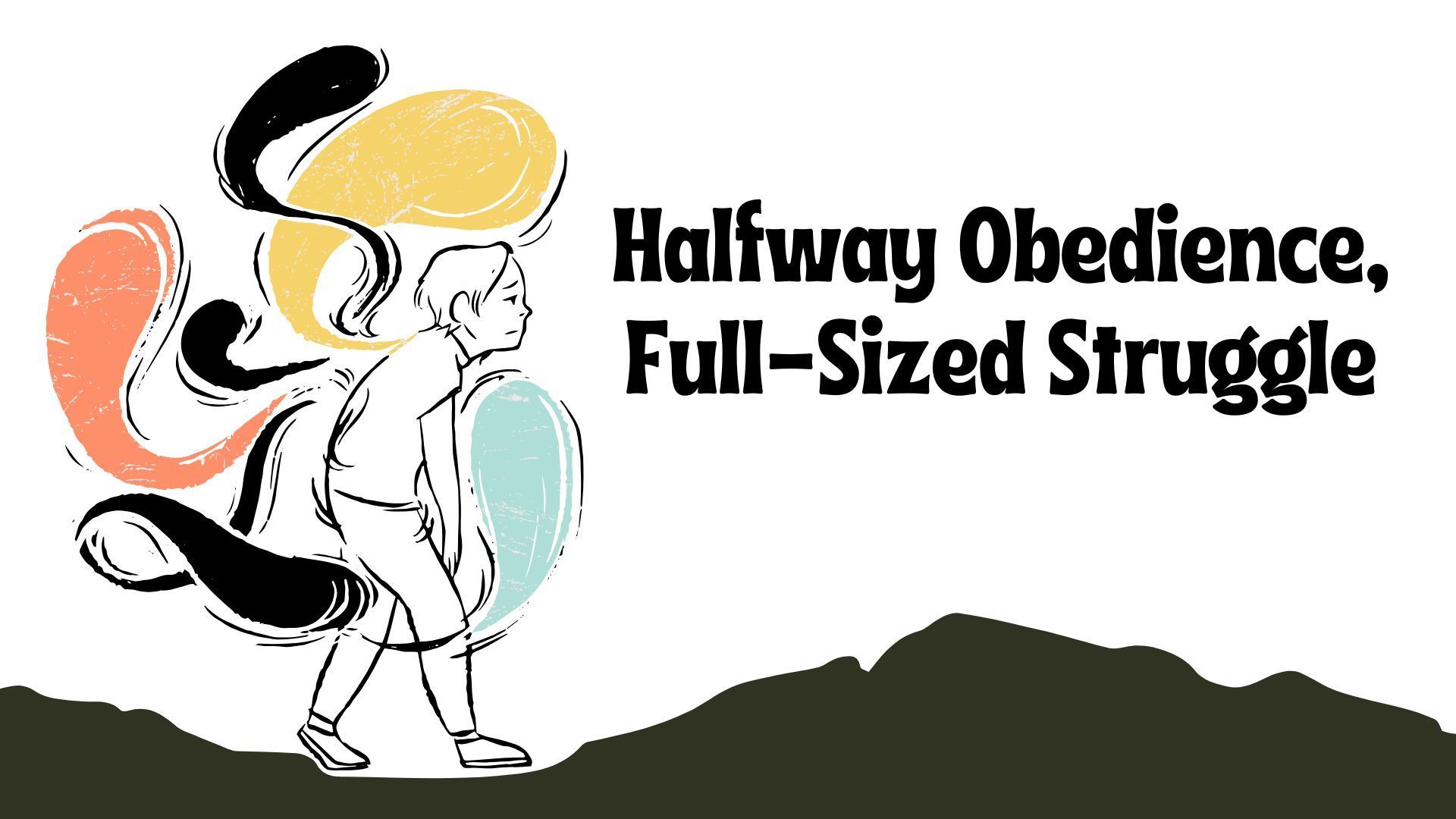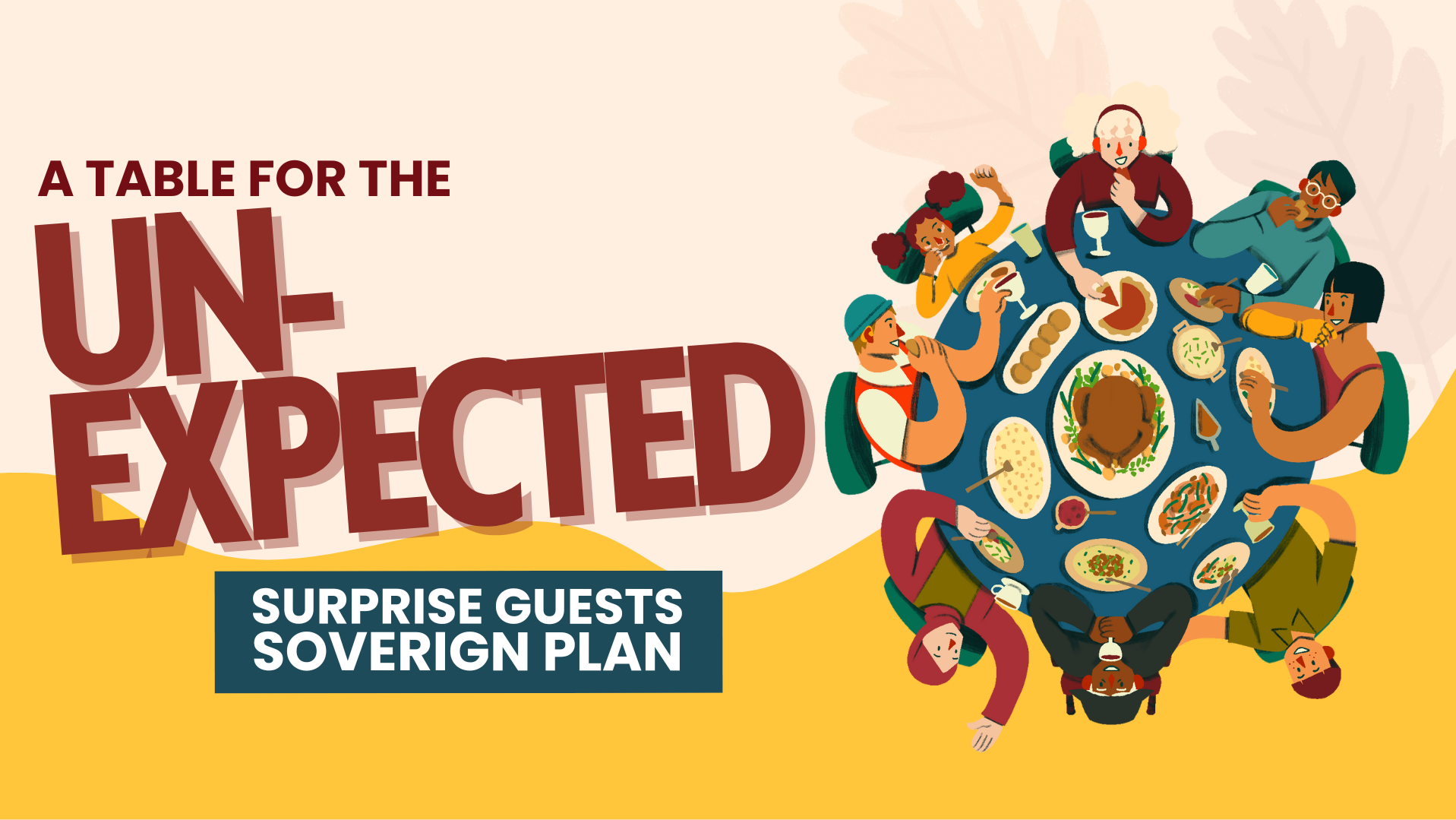PARTIAL OBEDIENCE; FULL-SIZED STRUGGLE

In Luke 5:4-11, we find a powerful moment between Jesus and Simon Peter. After a long, frustrating night of catching nothing, Jesus tells Peter to launch into the deep and let down his nets for a catch. Peter, exhausted and doubtful, responds, "Master, we have toiled all night and caught nothing. Nevertheless, at Your word, I will let down the net." Did you catch that? Jesus said nets—plural—but Peter only let down one.
Partial Obedience Brings Unnecessary Struggle
Peter obeyed, but only halfway. He trusted Jesus enough to let down a net, but not enough to fully embrace the command. And what happened? The net filled with so many fish that it began to break. The struggle wasn’t because of failure—it was because of abundance. But that abundance came with strain because Peter had limited his obedience.
How often do we do the same? We trust God—but only up to a point. We step out in faith—but we keep a backup plan. We ask for blessings—but aren’t fully prepared to receive them. Partial obedience brings partial results, and sometimes, it even creates unnecessary struggle.
The Weight of a Blessing
Jenna’s Sweet Blessings Bakery started as a dream. She believed God had called her to open a bakery, so she stepped out in faith. But the first few months were brutal. Slow sales, wasted pastries, and growing debt made her question if she had heard God correctly. Sound familiar? You follow God, but instead of instant success, you face opposition and struggle.
One night, Jenna decided to try one more time. Instead of relying only on walk-ins, she reached out to churches, businesses, and schools. The response was overwhelming—more than she could handle. Orders flooded in, and suddenly, her struggle shifted from not enough to too much. But here’s where the lesson deepens: the blessing became a burden because she was trying to handle it alone.
You’re Not Meant to Struggle Alone
When Peter’s net started breaking, he called for help. That’s when the miracle became sustainable. The boats filled, the burden was shared, and they didn’t lose the blessing. Too often, we suffer in silence. We try to carry everything alone—whether out of pride, fear, or embarrassment. But faith was never meant to be an isolated journey. Just like Peter needed his partners, and Jenna needed her team, we need each other.
God’s blessings are often bigger than what we can handle alone. That’s why we have the Church. That’s why we have community. Struggles are not meant to be faced in silence. Blessings are not meant to be carried alone. If we don’t call for help, we risk losing what God has given us simply because we refuse to share the weight.
Your Struggle is Preparation
Peter’s struggle with the net wasn’t about fish. It was about faith. It was about trust. It was about surrendering control. And after witnessing the miracle, Peter fell at Jesus’ feet, realizing how small his faith had been compared to Christ’s power. But Jesus didn’t rebuke him. Instead, He called him higher: “Do not be afraid. From now on you will catch men.”
Peter’s struggle wasn’t a punishment—it was preparation. The same Peter who hesitated in throwing out his nets would later preach the message of salvation at Pentecost, leading thousands to Christ. The struggle that overwhelmed him on the boat shaped him for his calling.
What if your current battle isn’t just about your circumstances? What if it’s about who God is shaping you to become? Jacob wrestled all night, and by morning, he had a new name and a new destiny. Your struggle is not your defeat—it’s your transformation.
Will You Fully Surrender?
Are you holding back a net? Are you trusting God, but only to a point? Have you been struggling alone instead of reaching out for help? Maybe you’ve been carrying a blessing that feels too heavy because you haven’t shared the burden. Maybe you’ve been hesitant in your obedience, and God is calling you to take the next step.
It’s time to let down all your nets. It’s time to trust God fully. It’s time to call on your community.
Jesus isn’t just calling you to a bigger blessing—He’s calling you to Himself.

From the very beginning, the enemy has had one goal: to steal what rightfully belongs to God’s people. Jesus made it plain in John 10:10: "The thief comes only to steal, kill, and destroy." The devil isn’t just trying to make life difficult—he wants to take something specific from you. He wants to rob you of your position, your authority, and your identity in Christ.

The book of Jude may be short, but its message is packed with depth and urgency. As we continue through this powerful letter, we find Jude urging believers to contend for the faith—to struggle for it, defend it, and stand firm in it. This isn't about being argumentative or contentious, but about upholding the truth with both boldness and grace.

Trusting Jesus doesn’t always look the same. Sometimes, it means stepping out in faith, taking action, and moving forward. Other times, it requires waiting—resting in Him and allowing Him to work things out in His timing. We want to fix things ourselves, to hustle and strive for solutions, but sometimes, God says, “Wait. I will fix it. I will work it out.”

Picture a vineyard, lush with green vines and branches heavy with ripe, juicy grapes. The vine dresser walks through the rows, pruning shears in hand. Every snip and cut, though painful to the branch, is intentional—designed to create space for greater fruitfulness. This image, drawn from John 15, paints a vivid picture of God’s role in our lives.

The Christian life is often described as a journey, a walk with God. This metaphor paints a picture of action, progress, and intentionality. In Colossians 1:24–2:15, Paul offers profound insight into what it means to walk in Christ. He challenges believers to stay grounded in the truth of the gospel, to avoid being captivated by hollow philosophies, and to live lives that reflect their faith. His words remind us that our walk is not just about movement, but about moving in the right direction.






